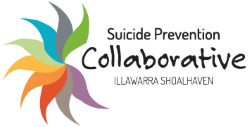The Illawarra Shoalhaven region has been selected to take part in Australia’s largest integrated suicide prevention program expected to reduce suicide deaths by 20% and suicide attempts by 30%.
This is a great opportunity given that suicide rates within the Illawarra Shoalhaven remain higher than NSW averages, with latest data reporting more than 40 suicides in the region in 2014.
A new approach to suicide prevention, developed by researchers at Black Dog Institute and the NHMRC Centre for Research Excellence in Suicide Prevention (CRESP), will be rolled out in four locations across NSW, including the Illawarra Shoalhaven.
Called Lifespan, this evidence-based ‘systems approach’ involves the simultaneous implementation of nine strategies proven to reduce suicide. It was developed in partnership with researchers, clinicians, community organisations, Indigenous health groups and people with lived experience of suicide and mental illness.
Prof Helen Christensen, Director of the Black Dog Institute and CRESP, said this solution should significantly reduce suicide deaths and suicide attempts, as well as improving the lives of those living with suicidal thoughts and mental illness.
“The nine key strategies include improved access to mental health care, quality education programs for people at the front line (emergency staff, teachers, GPs), minimising access to lethal means and encouraging safe conversations about suicide in schools, workplaces and communities,” said Prof Christensen.
“The key to this program, and what makes it different to anything tried before, is the intensity of the interventions – this is the first time we are implementing specially tailored and evidence-based strategies at the same time within local communities.
“Importantly, we have incorporated the knowledge of people who have experience of suicidal thoughts in themselves or a loved one,” she added.
Lifespan will be implemented in the Illawarra Shoalhaven from February as part of the work to be undertaken by the Illawarra Shoalhaven Suicide Prevention Collaborative. The Collaborative, which was established in 2015, consists of representatives from the Local Health District’s mental health services, University of Wollongong, Illawarra Health and Medical Research Institute (IHMRI), Grand Pacific Health, Lifeline South Coast and COORDINARE – South Eastern NSW Primary Health Network (PHN), as well as more than 20 local community organisations.
Dianne Kitcher, CEO of COORDINARE said: “We are delighted the Illawarra Shoalhaven has been selected as a pilot site for Lifespan, given the unacceptably high rates of suicide within the region.”
“The Collaborative is well positioned to lead this work – all members have a shared ambition of reducing the impact of suicide in the Illawarra Shoalhaven by working collaboratively using the systems approach to suicide prevention,” said Ms Kitcher.
In fact, the Collaborative has demonstrated its readiness for the Lifespan project over the last 12 months via a number of initiatives including developing a report on suicide and self-harm rates within the region, conducting initial mapping of suicide prevention activities and organising a planning workshop to identify and prioritise key areas for action.
“This additional funding from the Black Dog Institute will be used to engage a project officer to manage particular initiatives within the Lifespan project and to facilitate greater involvement of people with lived experience in planning, service redesign, and to deliver training locally. Specific projects will be defined by the regional suicide prevention plan.”
Lifespan is being implemented in partnership with the NSW Department of Health, Commonwealth Primary Health Networks, NSW Mental Health Commission, NSW Department of Education and local community organisations. Lifespan has been supported by a generous $14.7 million grant from the Paul Ramsay Foundation.
More information about Lifespan, including details of the nine strategies and the four trial locations, can be found at www.lifespan.org.au.
If you are feeling distressed and in need of immediate assistance, please contact Lifeline on 13 11 14 or Suicide Call Back Service on 1300659 467. Refer to www.mindframe-media.info for support and advice on reporting of suicide-related stories.
